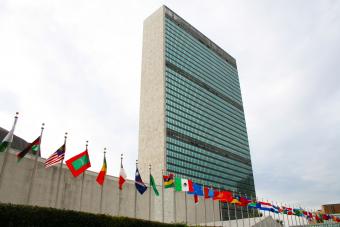International Governance
Recent Activity
This policy brief examines and reflects upon lessons learned from the last major attempt to resolve the problem of illegal immigration under the Immigration Reform and Control Act of 1986. Arguing that stable reform will require three “E”’s— enforcing immigration laws effectively, expanding visas, and earning legal status —it also offers recommendations for immigration policymaking and management.
This report looks at what, over time, has determined the various departmental or ministerial locations of migration policy decision-making in different states.
Caroline Dommen of 3D discusses the limits and possibilities of GATS to improve migrant workers' human rights.
MPI's Joanne van Selm analyzes the EU's latest effort to guarantee rights, protect refugees, and regulate migration flows and borders.
Although the number of refugees displaced from the conflict in Iraq was significantly fewer than expected, the war produced some 260,000 internally displaced persons (IDPs) in the North. Recent reports indicate that despite the threat of inter-ethnic retaliatory violence, many of these IDPs are now returning home.
Christina Boswell, Senior Researcher at the Hamburg Institute of International Economics, provides an in-depth look at burden-sharing and refugee protection.
The events that unfolded in the U.S. on September 11 generated a renewed sense of urgency over border management. Bilateral Smart Border agreements were reached between the U.S. and Canada as well as the U.S. and Mexico in December 2001 and March 2002. This report tracks the implementation of these border accords and seeks to evaluate their effectiveness.
In the immediate aftermath of September 11, the U.S. government committed to increasing national security through every possible avenue. Although the most effective measures to combat terrorism will inevitably rely on intelligence, certain immigration programs and procedures can contribute to better intelligence and enhanced security.







